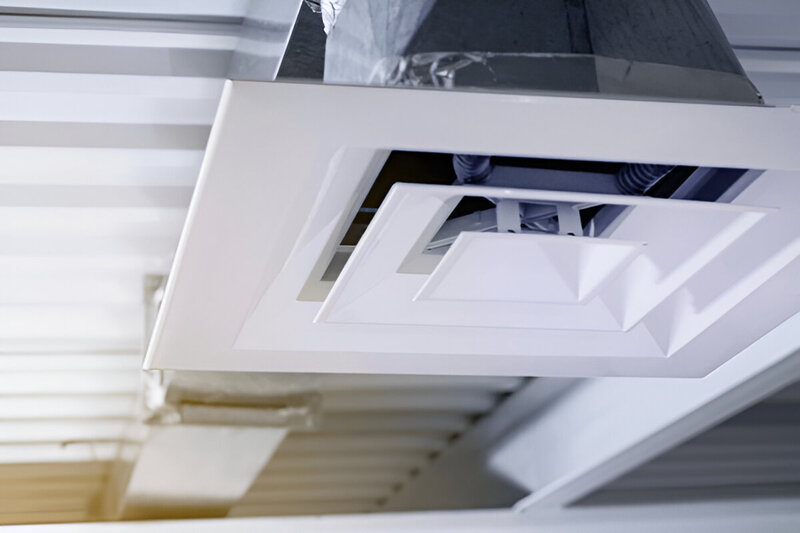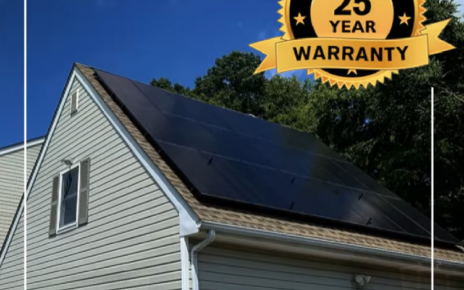For any homeowner, maintaining a comfortable and safe living space is a priority. The unpredictable weather only emphasizes the importance of this. At the heart of your cozy home lies an unsung hero—the ducted gas heating system. This essential appliance works silently to keep your home warm and inviting. But have you ever wondered how often it requires maintenance or repairs? You can avoid discomfort and unforeseen repair expenses by identifying the warning signals and knowing when to take action.
In this guide, we’ll cover everything from understanding how ducted gas heating systems work, identifying common problems, knowing the ideal time to schedule repairs, and the advantages of regular maintenance.
Why Is It Important to Maintain Your Ducted Gas Heating System?
To care for your heating system effectively, it’s essential to understand its basic operation. A ducted gas heating system distributes warm air evenly across your home through ducts and vents. This ensures a consistent temperature, keeping your living space cozy even during harsh winters.
When the system malfunctions, it impacts not just your comfort but also your safety. For example, faults can lead to carbon monoxide leaks, which pose a serious health risk. Timely repairs and regular maintenance ensure your system runs efficiently, improves air quality, and reduces your energy bills.
By taking a proactive approach, you can avoid unexpected breakdowns and keep your home a haven of warmth and safety.
Recognizing Common Issues
Understanding common problems with ducted gas heating systems helps you act before minor issues turn into costly repairs. The following are some common problems to be aware of:
- Thermostat Malfunctions: If your system isn’t turning on or shutting off correctly, it could be a thermostat issue.
- Inefficient Heating: When heating is uneven or your energy bills spike unexpectedly, it may indicate system inefficiency.
- Unusual Noises: Strange sounds like rattling or banging often mean parts need repair or replacement.
- Poor Indoor Air Quality: A malfunctioning system can circulate dust, allergens, or even harmful gases, affecting your family’s health.
Recognizing these signs allows you to schedule repairs promptly. Regular maintenance prevents such issues from escalating, ensuring peace of mind and saving money in the long run.
When Should You Schedule Repairs?

It’s critical to plan repairs at the appropriate time. The best practice is to plan maintenance before winter begins, as this is when the heating system will be used most intensively. Regular servicing, typically every 12 to 24 months, is recommended to keep the system running efficiently. By staying proactive, you can upgrade your system with ducted gas heating repair, ensuring optimal performance and avoiding unexpected breakdowns during the colder months.
Here are some signs that your system may need immediate attention:
- Reduced heating performance.
- Unusual noises or smells during operation.
- A sudden surge in your utility bills.
Ignoring these warning signs could lead to a complete system breakdown, especially during the colder months when you need it most. Scheduling regular checks ensures your heating system is ready to perform when you need it.
The Pros and Cons of Regular Maintenance
Frequent upkeep is an investment that yields savings and comfort. Let’s weigh the benefits and drawbacks:
Pros:
- Improved Efficiency: A system that is kept up to date consumes less energy, which lowers your electricity costs.
- Extended Lifespan: Regular servicing ensures your heating system lasts longer.
- Better Air Quality: Clean filters and ducts mean healthier indoor air for your family.
- Lower Repair Costs: Addressing minor issues early prevents expensive breakdowns.
Cons:
- Cost of Maintenance: Routine servicing comes with a price tag, but it’s far less than the cost of emergency repairs or system replacement.
- Finding Reliable Technicians: You’ll need to choose a trustworthy service provider, but once found, they’ll be invaluable in keeping your system in top shape.
Ultimately, the benefits of regular maintenance outweigh the drawbacks. Scheduled upkeep ensures your heating system remains reliable and cost-effective.
Practical Tips for Maintenance
To maximize the efficiency of your ducted gas heating system, follow these practical tips:
- Replace Filters Regularly: Clogged filters force the system to work harder, reducing efficiency.
- Inspect Ducts and Vents: Ensure they’re clean and free from blockages.
- Monitor Your Thermostat: Check that it’s calibrated correctly for optimal performance.
- Schedule Annual Servicing: Have a professional inspect your system annually to catch any hidden issues.
These simple steps can help you avoid major problems and keep your heating system running smoothly.
Conclusion: A Warm and Cozy Home
Maintaining your ducted gas heating system is key to ensuring your home stays warm, safe, and comfortable. Frequent maintenance prolongs the life of your system and increases efficiency, which ultimately saves you money.
By recognizing common issues and addressing them promptly, you can avoid unexpected breakdowns and enjoy uninterrupted warmth during the colder months. Scheduling annual servicing and keeping an eye on your system’s performance are proactive steps every homeowner should take.
As poet Robert Frost said, “Home is the place where, when you have to go there, they have to take you in.” It’s your responsibility to ensure that home is as warm and inviting as it can be. So, why wait? Schedule your ducted gas heating repair today and enjoy the comfort of a well-maintained home.




